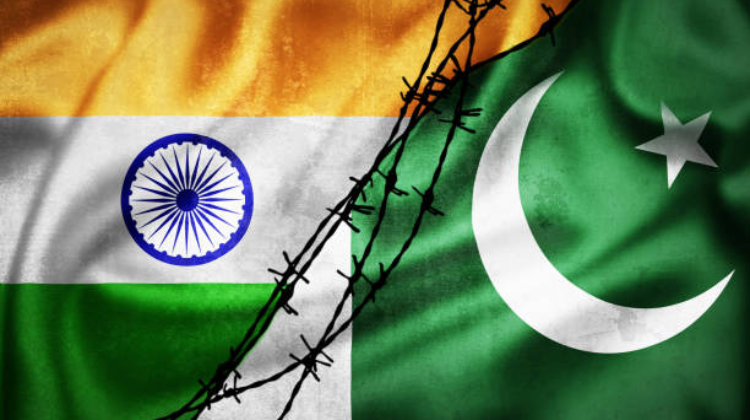India-Pakistan Tensions Boil Over After Kashmir Bloodbath!

India expels diplomats, halts water treaty, and cracks down on visas
after bloodshed in Kashmir.
In a dramatic escalation of tensions, India has taken sweeping diplomatic
and strategic measures against Pakistan following a deadly terrorist attack in
Pahalgam, a popular tourist destination in Indian-administered Kashmir, where
26 people were killed.
The Indian government announced the closure of the Attari-Wagah border
crossing — the main point of transit between the two nations — suspended the
decades-old Indus Water Treaty, and began expelling Pakistani diplomats.
Pakistani visa holders have also been ordered to leave the country within 48
hours.
The crackdown comes in response to Tuesday’s brutal assault, which has sent
shockwaves across the nation and reignited long-simmering tensions between the
nuclear-armed neighbours. The attack, believed to be carried out by the
militant group “Kashmir Resistance,” remains under investigation, with a
manhunt underway to track down the perpetrators.
Though Islamabad has denied any involvement, India has pointed fingers at
Pakistan, accusing it of tacitly supporting militant outfits operating in
Kashmir — an allegation it has made repeatedly over the years.
Prime Minister Narendra Modi, in a strongly-worded statement on X (formerly
Twitter), vowed swift justice. “Those behind this heinous act will be brought
to justice. Our resolve to fight terrorism is unshakable and it will only grow
stronger,” he declared.
One of the most striking retaliatory steps is the suspension of the Indus
Water Treaty, a landmark 1960 agreement that has withstood decades of hostility.
The treaty governs water sharing between India and Pakistan over six rivers of
the Indus basin and is seen as a vital lifeline for millions in both countries.
In a further diplomatic blow, India expelled Pakistani military advisers
from its embassy in Delhi and signaled that more expulsions are on the way.
Defence Minister Rajnath Singh also warned that India’s response will not be
limited to hunting down the gunmen alone. “We will strike not only at those who
carried out this attack but also at those who orchestrated it from behind the
scenes,” he said.
The Pahalgam massacre — one of the deadliest in recent years — has cast a
dark shadow over the scenic valley, often described as “heaven on earth.”
Eyewitnesses described scenes of horror as tourists, including families with
children, fled amid gunfire.
While most victims were Hindu, at least one local Muslim man was also among
the dead. Conflicting reports have emerged over whether the attackers
deliberately targeted non-Muslims.
Akib Chaya, a hotel owner and member of the Kashmir Chamber of Commerce,
reflected the collective grief of the local community: “We’ve hosted tourists
peacefully for decades. This is unthinkable. Kashmir has always welcomed people
— this violence is not us.”
International leaders have joined India in condemning the attack, while
Pakistan’s National Security Council is set to convene to discuss its official
response.
As tensions spiral and emotions run high, the Pahalgam tragedy threatens to
plunge Indo-Pak relations into yet another prolonged chill — with wide-ranging
implications for regional peace and stability.









